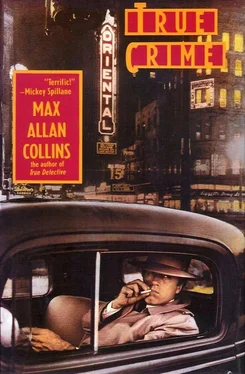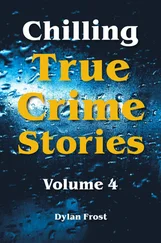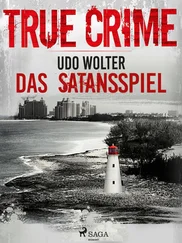He was sitting right next to me when he said it; I felt myself starting to shake. The gun was under my arm, but my hand was on my knee, a world away.
They’d been talking about the possibility of the feds marking the bills. It had happened in the Bremer snatch, and the dough had been so hot no fence wanted to touch it at first, though they finally sold most of it at a ten percent discount. Karpis said in this case they’d insist on used, non-consecutive bills, and set up for a fast ransom exchange — too fast, Karpis hoped, for the feds to get serial numbers recorded.
Floyd had suggested they sit on the money awhile, but float a few bills out just to see what happened. Karpis suggested the way to do that was remove some bills from Hoover’s wallet and substitute ransom money.
“If the bills are hot,” Karpis had said, “then Hoover’ll be the first to pass ’em. The papers’ll report the bills turning up, in whatever city he passes ’em in — Washington, D.C., most likely — and we’ll know right away if we need to fence the cash.”
Nelson said, “Anybody know a good hot-money fence? I hear Doc Moran’s gone out of business.”
A few smiles greeted this slice of gallows humor, and then Doc Barker made his remark about Nate Heller.
I glanced across the room at Dillinger, playing Sullivan, in fedora and dark glasses; below the mustache there seemed to be a trace of a smile.
“Yeah, I know him,” Karpis said. “He runs the Parkview Hotel in Havana. That’s a good thought. Heller’s a good prospect for moving the cash, if it turns out the feds marked it.”
I let some air out, and Doc glanced at me. “You okay, Lawrence? You sound like some old geezer gaspin’ his last.”
I managed a grin. “You should’ve seen me before I gave up smokin’,” I said.
He smiled briefly, and with his sunken cheeks it was like a skull smiling; then he turned his attention back to Karpis, who was asking for the group’s permission to sit on the money till they’d determined whether the feds had marked it or not; and, if so, to go ahead and fence the dough before the split. There was a general agreement on the subject.
After the final briefing, we drifted outside. Dillinger, or Sullivan — take your pick — strolled up to me, unable to suppress his wry smile. He glanced around to see if anybody was within earshot, and then quietly said, “You went white as a ghost in there, pal. What’s wrong — d’you think you were the only Nate Heller in the world?”
“I guess if there can be two of you, there can be two of me.”
He shrugged. “Anything’s possible.”
We were about an hour from Chicago. Karpis, Floyd and “Sullivan” left around two o’clock in one car; at three, Nelson, Chase, and the Barker brothers took off in another. I was to leave at four, driving Ma in the Auburn, followed by the Ford sedan, driven by Dolores, with Louise and Paula and Nelson’s wife Helen riding.
Not long after the Nelson car had taken off, I found myself back in the puce-papered room, in bed with Louise. There were worse ways to kill an hour, but she was starting to wear me down. I don’t mean to make like she was a real hot tomato or something, a regular sex fiend — no. She seemed to enjoy the act, all right, only she liked the attention, more. She liked being held. She liked being close to me. And I liked being close to her.
Maybe having been with a woman as strong as Sally made me appreciate this more dependent girl. I liked being looked up to; leaned on. The role of protector was attractive to me, just as attractive as her big brown eyes and blond bobbed hair and pale skin and...
And now and then it occurred to me how short a time I’d known her. That in those two days or so, I’d had her half a dozen times. I felt funny about it, though I didn’t quite know why — I just knew it was more than some kind of guilt over sleeping with my client’s daughter.
Now we lay between the sheets, naked, my arm around her. She had her head nestled in the crook of my arm, cheek against my chest, a pink-nailed hand against my chest as well, playing with the hair there.
“How’d you like to be free of all this?” I asked her.
She cocked her head and the brown eyes blinked. “Free of all what?”
“This. This life — on the road. On the run. Living with crooks, Louise.”
She smiled, put her head back on my chest. “You’re no crook to me. You’re just my Gentleman Jim...”
“Remember what we talked about yesterday? The big city, and you finding a job?”
“Y — yes. But that was just talk.”
“It wasn’t just talk. You know, there’s nothing binding you to this life, anymore.”
“But I been with Candy ever since—”
“Candy’s dead.”
She still had her head against my chest, as if listening to my heart. “But I’m with you, now — aren’t I?”
“Right now you are, yes. But I’m not Candy Walker. I’m not an outlaw.”
“You aren’t?”
“No. I don’t live in tourist cabins and farmhouses and the back seats of cars. I live in Chicago, Louise.”
“That doesn’t make you not an outlaw.”
She had me there.
“Well,” I said, “I’m not.”
“What are you, then? A gangster?”
She’d apparently heard of Chicago.
“No. Louise, listen to what I’m saying. I’m saying I can help you go straight.”
She lifted her head again; the brown eyes narrowed — I’d hurt her feelings. “I’m not a criminal. I may’ve sinned, but I’m not a criminal.”
“I know you aren’t. But wouldn’t you like to have a fresh start? In Chicago, maybe?”
“Sure. But you make it sound so... easy.”
“It is easy. Besides, I’ll be there to help you.”
She lifted her head to smile at me, pursing the beestung lips. “Good, ’cause I’d need help.”
“Of course, the first thing I think you should do is go home.”
The smile faded. “Home?”
“To see your father.”
“Oh. Oh, I don’t know about that...”
“You ought to set things straight with him. You owe him that much. And you owe it to yourself.”
“I wouldn’t want to see him alone.”
“Who says you’d be alone?”
“You’d go with me?”
“Sure. Right there by your side.”
“Then I’ll think about it,” she said. Snuggling closer.
I was helping her; I knew I was helping her. But I still felt like a dyed-in-the-wool bastard. For all my soft soap about setting things straight with her father, I knew damn well she’d do just fine never seeing the old boy again; I just wanted to deliver her and collect that thousand bucks.
It wasn’t that I didn’t want to tell her the truth — but what if I did, only to have her take a powder? That would be that grand her father promised me, you’d see going out the door with her.
And/or she might spill to Ma Barker and Helen Nelson and the rest of the mamas, some of whom were pistol-packing, and that wouldn’t fit in with my plans.
So at four I was on the road with Ma Barker, one last time, for one final round of Burma Shave readings, hymn humming and the eternal quest to find hillbilly music on the Auburn’s radio.
Ma, with a freshly curled head of Shirley Temple hair, interrupted those three favorite pastimes of hers now and again for some actual conversation.
“Big responsibility,” she said, kidding me, “havin’ a whole houseful of women to look after...”
“I figure they can look after me, Ma,” I said, smiling at her.
She smiled back, that oddly attractive smile that found its occasional way out of her homely countenance, saying, “You’re gonna treat that little gal right, aren’t you?”
“Lulu, you mean? Sure.”
“Got a good little gal, there. Don’t let ’er get away.”
Читать дальше












